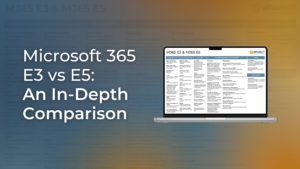Businesses are faced with three options in relation to the management of their IT systems and Infrastructure: hire IT staff, utilise a managed services provider, or use a combination of both. A Managed Services Provider enables your business to utilise a team of IT experts with a broad range of technical knowledge. This broad knowledge enables your business to remain operational regardless of IT problems encountered. Having a single IT Manager within an organisation can often lead to skills gaps which can lead to business inefficiency.
Another advantage of a managed services provider is the ability of an IT company to provide server and network monitoring. An IT consulting company will monitor servers for their ability to connect to the Internet. If they don’t check in to a monitoring system for a defined period 10 straight minutes, an urgent ticket is created, and action is taken. Preventative maintenance saves money in the long run by eliminating potential problems before they occur.
The fixed price nature of utilising a managed services provider also has the budgeting advantages of a fixed cost contract. There is no annual leave to pay, and no rehiring costs which may result from internal IT leaving your organisation.
Businesses can benefit from engaging a Managed Service Provider, to outsource their IT duties or to work with their existing IT team to eliminate gaps in IT knowledge
Whether your IT infrastructure is on premise, in the Cloud, or in hybrid mode, a managed services provider can tailor a support and management plan to suit your requirements. This enhances flexibility, efficiency, and allows you to focus on running your business. It is recommended that your organisation chooses a managed services provider who will undertake proactive monitoring, rather than reactive maintenance.
Related Link






